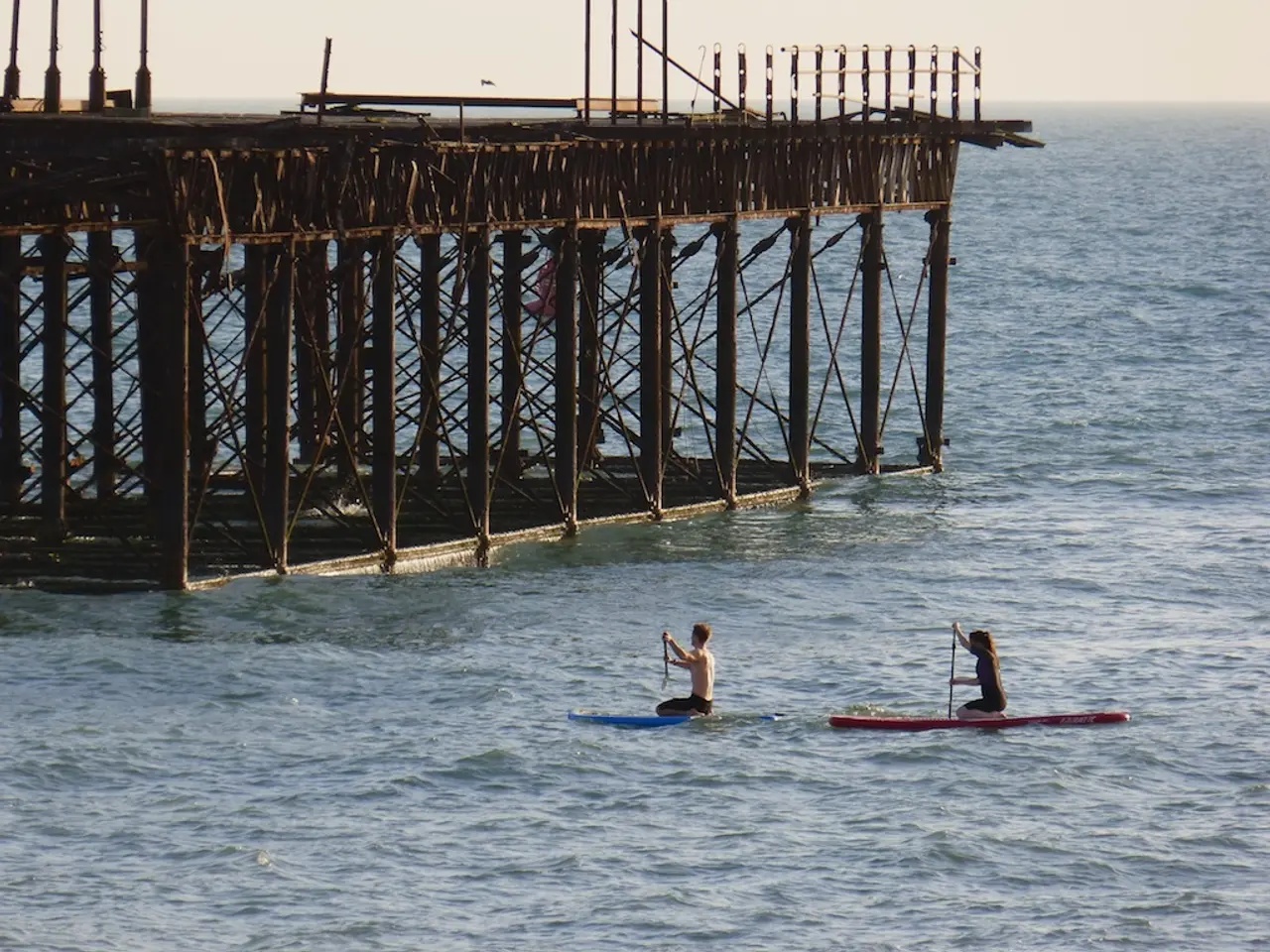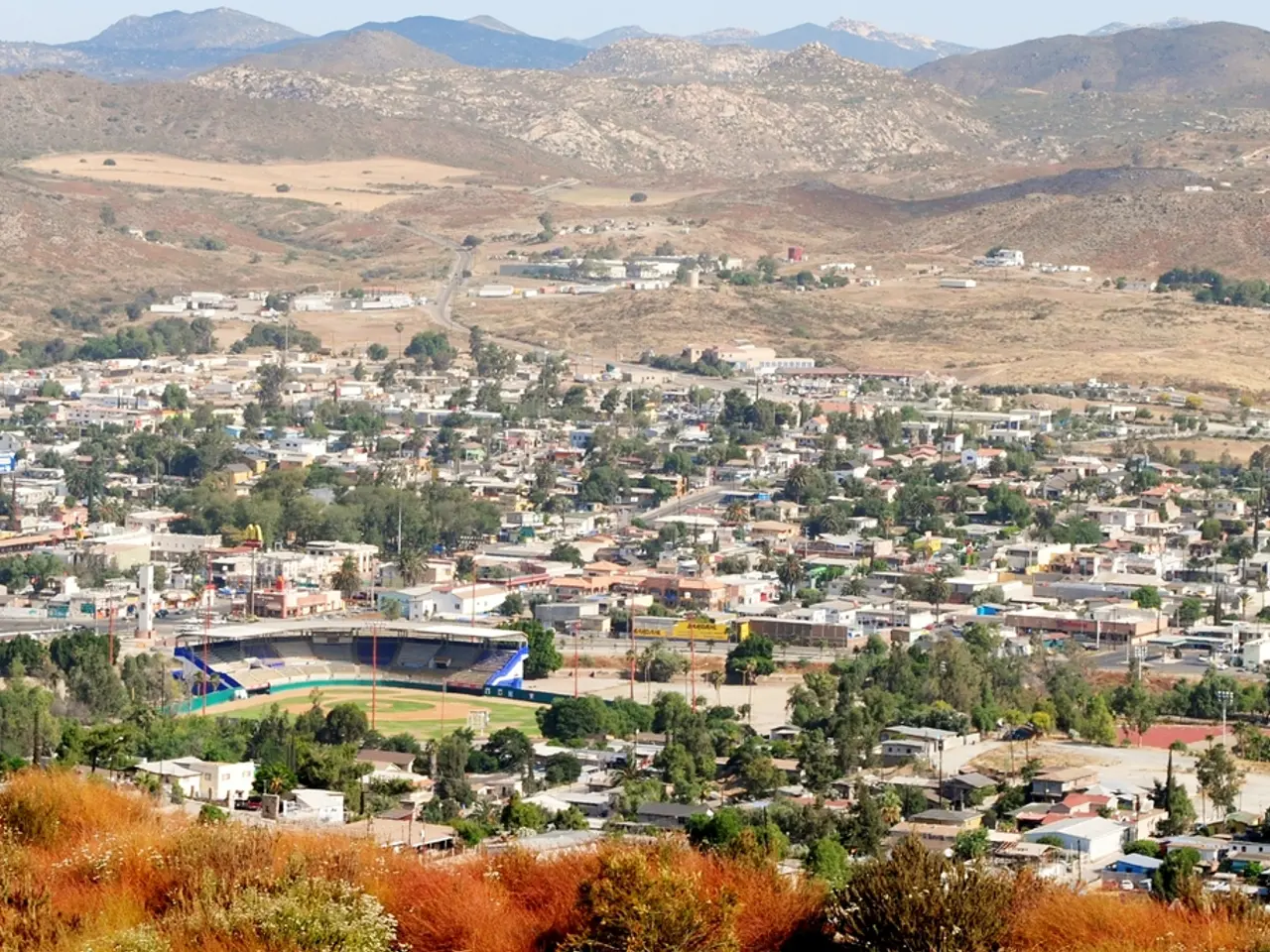Nok's significance may be dwindling
In a joint letter to the Federal Ministry of Transport, maritime organisations the Initiative Kiel-Canal (IKC) and the Nautical Association of Kiel (NVzK) have expressed concerns about the future of the North Sea-Baltic Sea Canal (NOK), a vital sea waterway for German imports and exports.
The NOK, the world's busiest artificial waterway, stretches over 100 kilometres and plays a significant role in the country's economy. However, according to Jens Broder Knudsen, chairman of the IKC, the canal is losing attractiveness for users, a claim supported by the NVzK.
The General Directorate of Waterways and Shipping (GDWS) in Bonn has reported a relatively stable traffic situation in the NOK in 2023. In response to the maritime organisations' concerns, the GDWS has committed to regular updates and consultations throughout the development and implementation of a comprehensive maintenance and modernization program for the NOK.
The GDWS has also acknowledged the concerns raised by the IKC and NVzK, assuring them of its commitment to addressing the issues and ensuring the continued viability of the NOK. The GDWS's preliminary plans for the program invite the IKC and NVzK to participate in its development and implementation.
The maritime organisations' concerns extend beyond the immediate condition and development of the NOK. They have also raised broader issues such as geopolitical tensions, technological threats, environmental and sustainability efforts, and competition from the Northern Sea Route (NSR) as potential factors affecting the canal's prospects.
Geopolitical tensions in the Baltic Sea region, including falsely flagged ships and the involvement of Russian naval forces, could impact shipping routes and the overall security environment. Rising cyber threats like GNSS spoofing, AIS manipulation, and digital sabotage could pose operational risks to vessels using the canal.
The maritime industry's focus on decarbonization and sustainability, as seen in initiatives like the European Green Deal, could also influence the NOK's future prospects. The increased navigability of the NSR due to climate change offers a new route option that could compete with traditional European routes for traffic.
In their 2024 letter, the IKC and NVzK have urged the Federal Ministry of Transport to prioritise the NOK as a critical sea waterway and to allocate sufficient resources for its maintenance and modernization. They have also emphasised the potential economic impact on German imports and exports if the NOK continues to lose attractiveness for users.
As the GDWS moves forward with its plans for the NOK, the collaborative efforts of the IKC, NVzK, and the Federal Ministry of Transport will be crucial in ensuring the long-term viability of this vital sea waterway.
The maritime organisations, recognising the economic significance of the NOK, have suggested that the Federal Ministry of Transport should prioritise its maintenance and modernization, considering the potential economic impact on German imports and exports if the canal continues to lose attractiveness for users. In the wake of increasing competition from alternative routes like the Northern Sea Route, it's essential to focus on addressing broad issues such as geopolitical tensions, technological threats, environmental sustainability, and finance to ensure the NOK's continued presence in the global transportation and finance industry.




